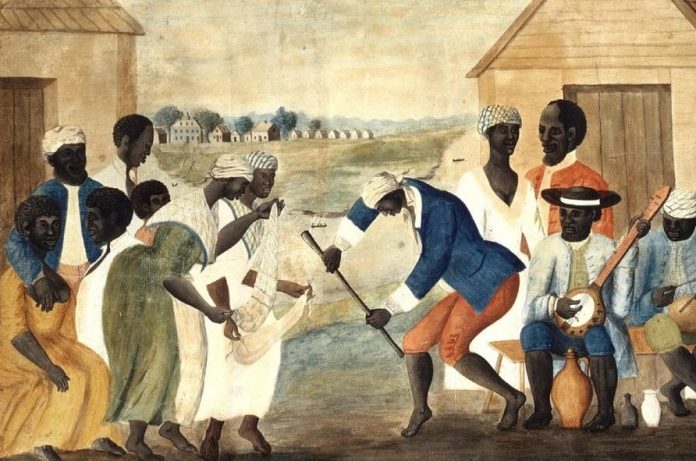Over the last week or so the New York Times has been running a series of feature articles called The 1619 Project confronting the 400th anniversary of slave ships arriving in the US through essays analyzing the impact of slavery on American history, politics and life. The series is, on balance, excellent and would be valuable reading for almost anybody who wants to understand America better. Naturally, because of the subject matter, the articles paint a picture of America that does not overlook one of our country’s primal sins. Moreover, reading the articles makes it difficult to avoid questioning much of what many Americans have learned about our history.
While some have lauded the series, many conservatives have been critical of The 1619 Project, asserting that it is racially divisive, partisan or forces them to confront aspects of American past they would rather continue ignoring. These conservatives have also accused the New York Times of engaging in propaganda rather than news reporting. While the 1619 series is not news reporting in the sense of telling readers about the events of the day, or of even analyzing the events of the day. It is a longform essay of the kind that we see in many newspapers that are seeking to be a little more interesting and yes, economically viable, in a time when media is changing. However, it is not the length of the series or the fact that it examines historical events that infuriates conservatives. Rather, it is that the 1619 series challenges shibboleths on which the US was founded, and is a reminder that the white supremacy that is rearing its nefarious and pathetic head once again in places like Charlottesville, El Paso and the White House, has long been part of American life.
Despite the substantial gains that were won during and after the Civil Rights Era, the US has never wrestled with its history of chattel slavery. More accurately white Americans have never sufficiently wrestled with that history
Despite the substantial gains that were won during and after the Civil Rights Era, the US has never wrestled with its history of chattel slavery. More accurately white Americans have never sufficiently wrestled with that history. It is true that most Americans learn about slavery in school and are aware of its past existence, but it is almost always treated like something that does not have bearing on life in the US today or on the broader scope of American history. The longer term impact of slavery, particularly on the freed slaves and their descendants, is rarely explored in white American society, culture and academia. Moreover, among Americans who are not descendants of slaves, the impact of slavery both on the persistence of white supremist views and on the economic and political development of the US before and after slavery is very rarely studied, discussed or even mentioned.
Thus, slavery is largely ignored in favor of a larger narrative of the US as, to use Ronald Reagan’s phrase, “a shining city on a hill.” Americans are deeply wedded to the notion that our country is both morally good and a force for good globally. An honest look at slavery makes maintaining that view extremely difficult. For conservatives, the way to resolve this dilemma is to oppose an honest view of slavery. Reading about slavery and its legacy in a detailed, well researched and well publicized series in the New York Times is therefore deeply offensive and threatening to them.
This conservative position on American history is consistent with the Republican Party’s views on science. In both cases, difficult and complicated truths, like the role of slavery throughout American history, or the devastating impact of human made climate change, are simply ignored, presumably in the hopes that these problems will go away. Unfortunately, this approach has a large constituency among the many Americans who do not want to alter their lifestyles in any way to save the planet for future generations and among those who do not want to recognize that the stories they were told about America’s greatness as children, and in many cases well into adulthood, aren’t exactly the whole truth.
It should come as no surprise that a party that nominated Donald Trump for President, a man for whom ignorance of history and science seems almost a matter of principle, is deeply steeped in anti-intellectualism, but Trump’s presidency is only part of what has been a decades long struggle over whether science and a nuanced understanding of history on one hand or storybook understandings of history and a selective understanding of the Christian scriptures on the other, should inform public policy. In a few weeks the academic school year will begin and the media will be filled with the usual partisan drivel about how the progressives have taken over academia. Those claims are in many cases true, but are the fruit of the Republican war on knowledge that predates Trump. The Republican Party and the right wingers who make up its base can either continue to deny climate change and refuse to reckon with American history, or can complain about left of center biases on campuses, but it cannot rationally continue to both.
www.lincolnmitchell.com
Follow me on Twitter at http://twitter.com/LincolnMitchell

